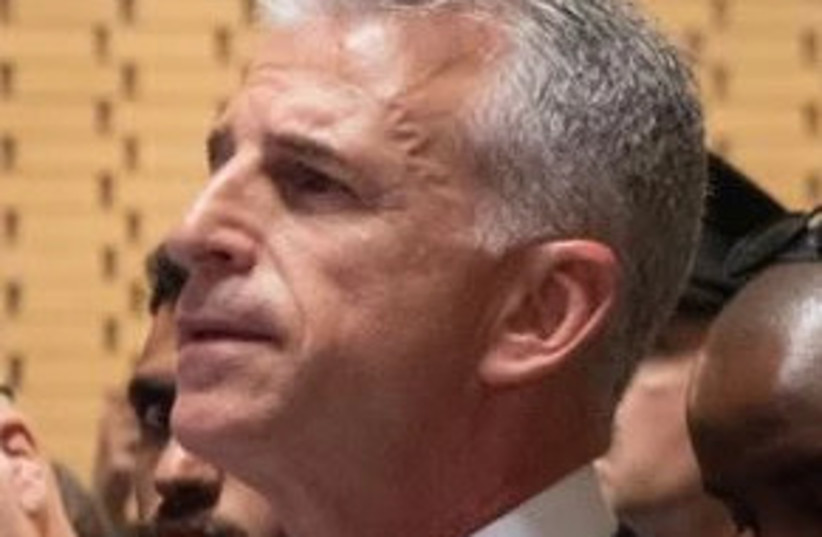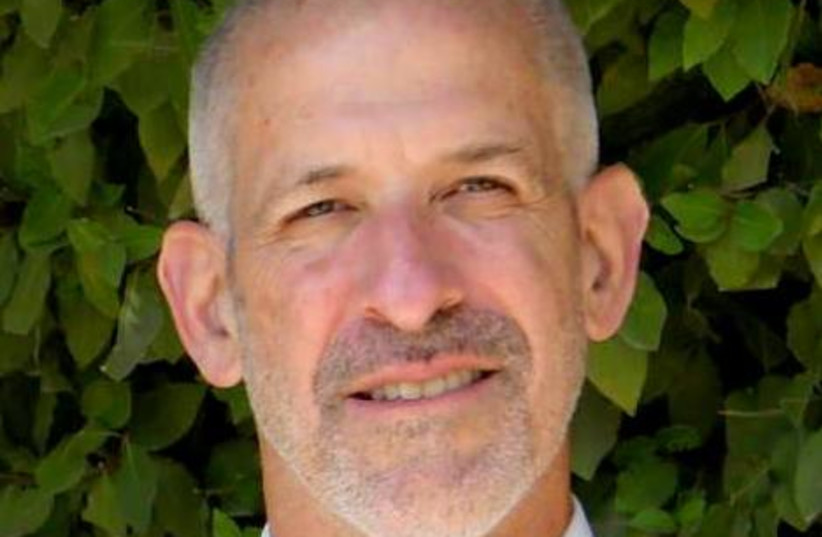When it comes to countering the Iran deal and Palestinian terrorism, there are two men who have enormous influence: Mossad director David Barnea and Shin Bet director Ronen Bar.
There are still disagreements within the defense establishment over whether a return to the Joint Comprehensive Plan of Action (JCPOA), with all of its flaws, is preferable over no deal at all and no apparent American Plan B.
But The Jerusalem Post has learned that Barnea, in recent months, has bulldozed to the side some of those who are less aggressive regarding Iran.
Mossad director David Barnea publicly stands against returning to the Iran deal
Crucially, he has won over Prime Minister Yair Lapid into taking a publicly critical stance regarding the US’s efforts to return to the JCPOA.
His victory became more evident when his talking points to Lapid were released to the public on August 25, at a key sensitive moment in the US talks with Iran over the JCPOA.

Slamming the US for rushing into a terrible deal, Barnea said that a new nuclear agreement with Tehran would not block the Mossad from acting against Iran in the future to protect Israel’s security interests.
“Israel is not signed on to the deal. Israel is permitted to defend itself in any way possible and will act this way. We cannot sit quietly and just watch as the danger grows closer.”
Mossad director David Barnea
“Israel is not signed on to the deal. Israel is permitted to defend itself in any way possible and will act this way. We cannot sit quietly and just watch as the danger grows closer,” Barnea, who took up his post in June 2021, told Lapid.
In 2018, when the Mossad seized Iran’s nuclear archive from Tehran and brought it back to Israel, questions about the Islamic Republic’s desire to achieve nuclear weapons capability “changed from a data point to a fact,” he told the prime minister.
Both to Lapid, and then in meetings in mid-September with CIA Director William Burns and other top US officials in Washington DC, Barnea hammered home that Iran’s complete deception of the IAEA in 2015 and to date would be an inextricable part of the picture of any new deal with the world powers, which are downplaying Iran’s own lies to them.
His message since his June 2021 appointment has been that as much as the West is demanding that the IAEA’s probes of illicit nuclear material found during their inspections of Iranian nuclear facilities stay open, keeping such probes open with serial liars is an act of self-sabotaging efforts to prevent Iranian nuclear aspirations.
That he had such a robust stance against the ayatollahs should not have surprised anyone who paid attention to his Chanukah speech in December 2021, in which he said, “on my guard, I will do everything to make sure that Iran will not get a nuclear weapon. And I mean that,” adding that he would invest most of his time to do everything he could to block Iran from obtaining the bomb.
DURING THE year that Naftali Bennett was prime minister, Barnea was also critical in the paradigm shift of increasing deterrence against Iran’s using drones and proxies to strike Israel.
He was a loud supporter of declaring to the Islamic Republic that if it sent one drone against Israel, within a day it could face massive consequences.
In one instance, Israel reportedly destroyed over 100 Iranian drones, after Tehran attempted a drone attack on it.
Barnea would say that the ayatollahs now understand that if they try to make trouble in Gaza or somewhere else, they will feel the consequences on their own mainland.
From April 30 to June 15, a wave of top Iranian nuclear scientists and Islamic Revolutionary Guard Corps (IRGC) officials were assassinated, shaking the regime in Tehran to its foundations.
During his tenure, the clandestine agency has also outmatched Iran when Iran tried to retaliate against Jews in third-party countries, as happened in Turkey in June.
The Mossad chief and his team have been credited with uncovering the Islamic Republic’s attempts to kill Jews and Israelis living in or visiting Turkey. The Post understands that he personally and directly managed the entire operation to evacuate them.
Barnea took personal pride that after his spies outwitted the IRGC terrorists, that IRGC Intelligence chief Hossein Taeb was fired by Iranian Supreme Leader Ayatollah Ali Khamenei.
He would emphasize that some of the Israelis in play were moments away from being shot in the head if the Mossad had not moved so fast.
Besides the Iran issue, Barnea would say he completed a dramatic revolution in reorganizing the Mossad by reducing or closing certain subdivisions and vastly increasing investment in others in order to give the organization rapid momentum to win the various ongoing technology races.
Very concretely, Barnea recently obtained a deal from the Finance Ministry to pay special higher salaries for specific kinds of roles, in particular for employees in the cyber, artificial intelligence and technology fields, in order to be able to compete with the private sector for the country’s brightest minds.
Although there have been reports of Mossad contacts with Sudan and other countries, there has been less public reporting about the agency‘s taking a lead in furthering the Abraham Accords than in the pre-2021 period – probably partially because now relations with many countries are public. Barnea was directly involved, though, in the pre-2021 efforts as deputy chief of the Mossad.
Who was David Barnea before being head of the Mossad?
BARNEA WAS in an elite IDF reconnaissance unit prior to joining the Mossad in 1996.
He served in a wide variety of Mossad divisions, such as head of the Tsomet spy recruitment division from 2013-2019 and deputy head of the Keshet electronic eavesdropping division.
While Barnea ran the Tsomet division, the unit won four national security prizes.
He served as deputy director starting in 2019 and beat out Ehud Lavi, a former deputy chief, for the top job.
Barnea’s positions from 2013 until becoming the new chief mean that he was involved in all or almost all of the major Mossad operations during that time.
Some operations attributed to the Mossad or where the Mossad was given substantial credit include the 2018 heist of Iran’s nuclear archives; the July 2020 and April 2021 sabotage operations against the Natanz nuclear facility; the assassination of Iran nuclear chief Mohsen Fakhrizadeh; and the assassination of Islamic Revolutionary Guard Corps Quds Force chief Qasem Soleimani.
Barnea is definitely viewed as a risk-taker, in the vein of his predecessor, Yossi Cohen, who wants to get up in the face of Israel’s enemies.

Ronen Bar, the Shin Bet director who is the nemesis of terrorists trying to harm Israelis
THERE IS no question that in his approximately 11 months in office, Ronen Bar has left his mark as a determined nemesis of terrorists trying to harm Israelis.
Many give him significant credit for slamming the brakes on the wave of terror this past May, in which 19 Israelis were killed and that easily could have turned into a broader intifada like three earlier rounds before his term.
But the Post has learned that maybe his most interesting and impactful role has been how quickly he emerged as Israel’s exclusive go-to point man for sensitive contacts about national security with countries on Israel’s borders.
Bar would flag how he was sent to Egypt in mid-November 2021 to resolve tensions between the countries only one month after his appointment.
The meeting came amid a flurry of reports of concerted efforts by Egypt to reach agreements concerning an extended ceasefire and prisoner exchange deal between Israel and Hamas in Gaza.
There has been an uneasy reduction in conflict between the sides since the May 10-21, 2021 war, yet a low simmering conflict had continued and periodically threatened to revert into a full-scale war.
Since then, Bar has been critical in relations with Jordan, the Palestinian Authority and others in terms of combating traditional spying, security coordination and intelligence collection but also in areas where regional security and diplomacy overlap.
Besides regional issues, Bar has made an attitude of integration with other Israeli security forces, like the IDF and the Mossad, a way of life as opposed to merely a technical box to check periodically.
Although there has always been coordination by top officials of the disparate intelligence community organizations, the Shin Bet director has also furthered that joint effort to lower rank-and-file levels.
He is accomplishing this integration with concrete new initiatives and with clear messaging of the need for openness, innovation and revolutionary new ideas from the top.
In early September, Lapid specifically praised Bar for his audacity in pushing the organization to stay one step ahead of the enemy at all times.
Bar’s approach has translated into new highs in operational readiness and the level of quality and intimacy of the intelligence the agency provided during Operation Breaking Dawn in Gaza from August 5-7.
In parallel to his aggressive attitude in hitting hostile Gaza forces, the Post has learned that Bar has led the charge for increasing the number of persons from Gaza to be allowed to work and earn money in Israel.
This is part of Bar’s strategy to generate economic growth in Gaza in order to convince the public there and their Hamas leaders that starting a new conflict is not worth undermining the new growth.
The Shin Bet chief is working hard to have his team strike the right balance between permitting the entry of more Gazan workers and maintaining tight security so that this initiative does not let in potential terrorists.
In terms of successfully putting down the May terror wave, the Shin Bet under Bar has further branched out into new techniques to stamp out any potential spread of ISIS ideology in the area, as well as confront any potential terror trends within Israel.
As the Shin Bet has entered some of these new areas to prevent pockets from forming that could advance terror causes, Bar has pressed not to lose sight of the agency’s being limited by the country’s democratic principles and, when necessary, has advocated restraint from using its full force.
Bar has also been used as an ambassador to the American Jewish community, speaking to the Park East Synagogue in New York this past spring.
In the speech acquired by the Post, Bar discussed the complexities of balancing security and democracy as the challenge which sometimes forces the agency to be most creative.
On an entirely separate note, Bar has encouraged new levels of diversity and inclusion in the new classes of Shin Bet recruits.
Currently, the Shin Bet high command has four women, more than at any other time in its history. This includes women not only in analysis but also in field assignments, operations, technology and providing security.
At the same time, the agency’s numbers of disabled, haredi and openly LGBTQ persons are growing as well – groups which had lower representation in the past.
